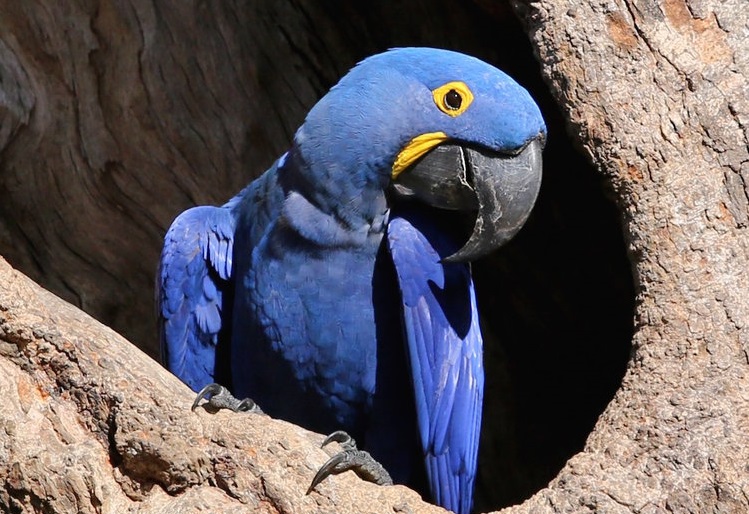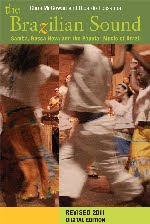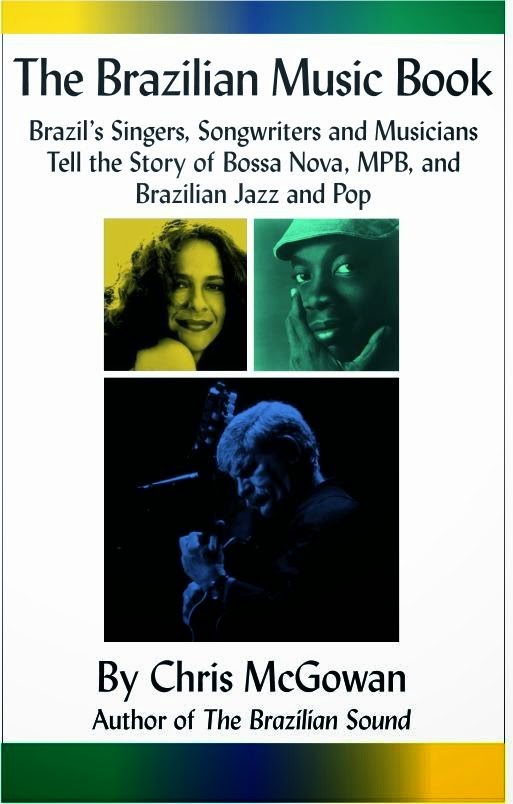Jovino at Instrumental SESC Brasil, performing Passareio / Amoreira
Chris: You have collaborated with Airto and Fourth World. What kind of music do they play, and what was the experience like?
Jovino: I learned a lot during my time with Airto, Flora and Fourth World. In that band I was mostly playing keyboards, and I developed a sense of textures and possibilities for using electronic instruments. Airto is a fantastic musician, and I always liked his playing, since I heard him playing the donkey jawbone in "Disparada" way back in the '60s [with Quarteto Novo, backing Geraldo Vandré]. He is a fantastic drummer and percussionist.
Chris: Are you still archiving Hermeto’s compositions? I understand you've filed over 1,000 of his compositions.
Jovino: I am always working on preparing Hermeto's music as a legacy to the musicians of this and the next generations. I have edited one book, Tudo É Som, which was published by Universal Edition, and that book has been important in helping musicians connect with Hermeto's work. This work of preparing and notating Hermeto's music will probably take many more years, since there is so much material, but I do it one day at a time. Eventually more music will be made available using more modern means, like the Internet.
Chris: Is your archival work for Hermeto helping musicians to perform and record his compositions?
Jovino: This is what I hope. I have received some great feedback and comments from musicians from all over the world. Of course, Hermeto is a legendary musician, but it is very hard to transcribe his music from recordings. It is also very difficult to tell what is written from what is improvised in his work, so I hope to help other musicians access his work.
Chris: What is the Hermeto Pascoal Big Band exactly?
Jovino: Hermeto has been writing big band charts since the early 1970s. In 1986, 1989 and 1992 he was commissioned by the Danish Radio Big Band to write some more music, which they performed. In 2000 and 2004 another big band was formed with top players in London to perform his compositions, under my direction and with Hermeto as a soloist. We also played in 2005 in France with the Big Band from the Toulouse Conservatory. Hermeto's jazz orchestra charts are challenging and beautiful, audiences really enjoy them. I directed a U.S. premiere of several of them with the Bobby Sanabria Big Band in New York's Merkin Hall in September 2006. [Author's note: Jovino later added that some Hermeto jazz orchestra pieces debuted prior to that in an October 26, 2004 concert with the University of North Texas Jazz Repertory Ensemble, directed by John Murphy at UNT, with Jovino as a guest pianist.].
Chris: What has been the importance of Hermeto as a mentor for you? How did he help you develop as a musician?
Jovino: Hermeto was my school for 15 years, and I continue to learn from him by studying, practicing and analyzing his music. His importance as a mentor to several generations of Brazilian musicians is undeniable. As a teacher, he never "taught", but instead he knew exactly what kind of challenge to place in front of a musician. He knew what kind of language to employ with each one, and how to make musicians with widely different levels of expertise play together harmoniously.
O Grupo with Jovino and Hermeto
(top row together, in the middle)
Chris: What were the rehearsals like for O Grupo?
Jovino: Every day was different. We often would spend entire days working on one challenging passage, learning it individually and collectively. He often composed the music in front of us, so we also got to know how to compose, arrange, score and lead a group. At other times he would dismantle the rehearsal by starting some wacky improvised piece of music, and this could lead to new written music. There was never a dull day in the Grupo.
Chris: What were the live performances like for O Grupo?
Jovino: Our sets were never pre-determined, we would often change a piece in the middle into another one. Often there would be guest musicians sitting in with us, or new compositions would be premiered right there in front of the audience. We have played concerts as long as five hours, so this was certainly a stamina-building exercise...
Chris: Can you talk about Hermeto’s harmonic concepts? And how have they influenced you?
Jovino: His harmonic concepts are indeed a new way to look at music. The idea of one tonal center or key signature that we have been using in music for centuries has been replaced with a much deeper and multi-layered approach. His music can be folkloric, regional, popular, jazzy, atonal, but the concept remains as a guiding force. It's hard to explain without an instrument, but its basis is the juxtaposition of simple triads and the avoidance of linear forms such as scales or modes. You can employ it to play all existing music, but it can lead to creation at a much higher level.
Chris: Are there any important trends you see in Brazilian music today, both instrumental and otherwise?
Jovino: I just got back from Brazil, where I travelled through the Nordeste region, from Alagoas to Paraíba and Pernambuco, and I heard a lot of young musicians playing very creative music based on their traditional forms. I heard bands like Sertão Catingoso, O Quadro, Azabumba, and many others who are combining traditional Northeastern forms with contemporary concepts in music. Also in Rio, I heard young choro players like Eduardo Neves, Caio Marcio and Rogério Caetano injecting new life into a 150-year old style. It's certainly encouraging to hear this music and know that in spite of little attention given in the mainstream media, music in Brazil is alive and well.
Chris: Could you comment about the music of your fellow Grupo alumnus, Carlos Malta?
Jovino: Carlos Malta has always been a virtuoso flutist and saxophonist. Recently I saw him on TV playing with carpideiras, women who sing at funerals, and also with some traditional musicians from Goiás. I admire his talent and his creativity.
Chris: Are there any promising young musicians in Brazil that have caught your ear? Perhaps Yamandú Costa, Hamilton de Holanda? Anybody you'd like to talk about?
Jovino: Yes, both Hamilton and harmonica player Gabriel Grossi recorded with me in Roda Carioca. There are far too many young talented musicians to mention. Itiberê Zwarg, with his Orquestra Família, and the Pró-Arte, with their Flautistas Group, have done a lot to bring new players into the scene. Yamandú is an amazing guitarist, as are Marcus Tardelli, Daniel Santiago, Caio Márcio, and Rogério Caetano. There is a great new generation, and I am very pleased to hear them.
Chris: What are your current creative projects?
Jovino: I am always working on a few things at the same time. Right now, I am diving deeply into the music of the Nordeste for my upcoming CD, which will be recorded in August. I am working to bring the beautiful musical languages of the aboio, pífanos, maracatu, frevo and xote into a personal blend that will sound harmonically modern, but without losing its connection to the land. It will be called Alma do Nordeste and will be the result of a research trip I just took through the region, courtesy of a grant from Petrobrás. I am also recording a solo piano CD this week for Adventure Music, and I am writing a piece for twenty percussionists that will be premiered here in Seattle in July.
Chris: Brazilians are known for being eclectic musicians and you are one of the most diverse, ranging across Brazilian and American styles, jazz and classical music, and the avant-garde.
Jovino: I feel happy to be able to connect musically with the entire planet.
Since our interview took place, Jovino has released the albums Alma do Nordeste (2008) and Veja o Som (2010). The latter is a double CD of duets with musicians such as Bill Frisell, Paquito d'Rivera, João Donato, Airto Moreira, Joyce, Paula Morelenbaum, Monica Salmaso, Ricardo Silveira, and Gabriel Grossi. He addition, he has released Current (2011), and Guris with Andre Mehmari (2017).
______________________________________________
Jovino's Favorite Hermeto Pascoal Compositions
In 2010, I asked Jovino to send me a top ten of his favorite recorded Hermeto Pascoal compositions, with a sentence or two about each one. Here is his list:
ONE: "São Jorge" -- one of several horse songs Hermeto has composed, this one was also the very first track I recorded as a member of his group in 1978.
TWO: "Nem Um Talvez" -- also recorded by Miles Davis, this has to be one of the prettiest melodies ever written. Gorgeous tune...
THREE: "Dança da Selva na Cidade Grande" -- this one shows Hermeto’s mastery of wooden flutes and natural sounds and his collage of voices and percussion (including sand, corn, beans, chains and water in the studio). One of several ?Indian? songs by HP.
FOUR: "Missa dos Escravos (Slaves Mass)" -- a very mysterious piece, made famous by the use of pigs in the recording. There’s much more than that, though. The harmony (unusual tuning of the guitar), the flutes and the chants make this tune one of my favorites.
FIVE: "Montreux" -- I watched that one being written in a hotel room in Montreux, Switzerland, in 1979 on the back of a laundry list, just a few hours before we played it in front of a huge crowd. My wife Luzia is Swiss; we were there that day and still remember it fondly...
SIX: "Quebrando Tudo" -- this entirely improvised piece one shows Hermeto’s amazing performance on the clavinet. He created the whole thing on the spot.
SEVEN: "Intocável" -- a beautiful choro, modern and traditional at the same time. The great Raphael Rabello recorded it with us. I always remember his laughter when I hear that tune.
EIGHT: "Três Coisas" -- one of the many examples of the Sound of the Aura, a technique created by Hermeto to harmonize the sound of the human voice. I played all the sounds on this one, built around the voice of the great poet and actor Mario Lago.
NINE: "Série de Arco" -- Hermeto composed this one to accompany my sister Maria Luiza’s routine as a rhythmic gymnast in 1980, first as a solo piano piece, then he arranged it for the Grupo. Wonderful harmonic language, a technical challenge to play. The composition followed her movements as she rolled on the floor and jumped around.
TEN: "Suite Norte, Sul, Leste, Oeste" -- a wonderful collection of short vignettes inspired by the diversity of Brazilian music.
____________________________________________
Select Jovino Santos Neto Discography
(U.S. releases unless otherwise noted)
Jovino Santos Neto (solo or with his Quintet)
Caboclo. Liquid City Records, 1997.
Ao Vivo em Olympia: Live in Olympia. Liquid City Records, 2000.
Canto do Rio. Liquid City Records, 2003.
Roda Carioca. Adventure Music, 2006.
Alma do Nordeste. Adventure Music, 2008.
Veja o Som See the Sound. Adventure Music, 2010.
Current. Adventure Music, 2011.
Jovino Santos Neto & André Mehmari
Guris, Adventure Music, 2017.
Jovino Santos Neto & Weber Iago
Live at Caramoor. Adventure Music, 2009.
Richard Boukas & Jovino Santos Neto
Balaio. Malandro Records, 2000.
Wolfgang "Humbucker" Frisch, Dr. Nachstrom, et al.
Rhythmic Fission: Digital Revisions of Classic Trax. RCA, 2004. (included Jovino Santos Neto & Tamara L. Weikel’s "Ritual Rhythm," based on Stravinsky’s Rite of Spring).
Mike Marshall & Jovino Santos Neto
Serenata: The Music of Hermeto Pascoal. Adventure Music, 2003.
Hermeto Pascoal (with Jovino Santos Neto in O Grupo)
Zabumbê-Bum-Á. WEA (Brazil), 1979.
Ao Vivo em Montreux. WEA (Brazil), 1980.
Cérebro Magnético. WEA (Brazil), 1980.
Hermeto Pascoal e Grupo. Som da Gente (Brazil), 1982.
Lagoa da Canoa, Município de Arapiraca. Som da Gente (Brazil), 1984.
Brasil Universo. Som da Gente (Brazil), 1985.
Só Não Toca Quem Não Quer. Som da Gente (Brazil), 1987.
Festa Dos Deuses. PolyGram (Brazil), 1992.
Joyce Yarrow & Jovino Santos Neto.
Total Reflex. Independent, 2000.
Jovino Santos Neto Bibliography
Tudo é Som (ed.). Vienna: Universal Edition, 2001.
World Music Brazil: Play-Along Flute. Universal Edition, 2008. Our musical guide "The Brazilian Sound: Samba, Bossa Nova and the Popular Music of Brazil" is now available as an ebook in the Nook format:
Our musical guide "The Brazilian Sound: Samba, Bossa Nova and the Popular Music of Brazil" is now available as an ebook in the Nook format:


















